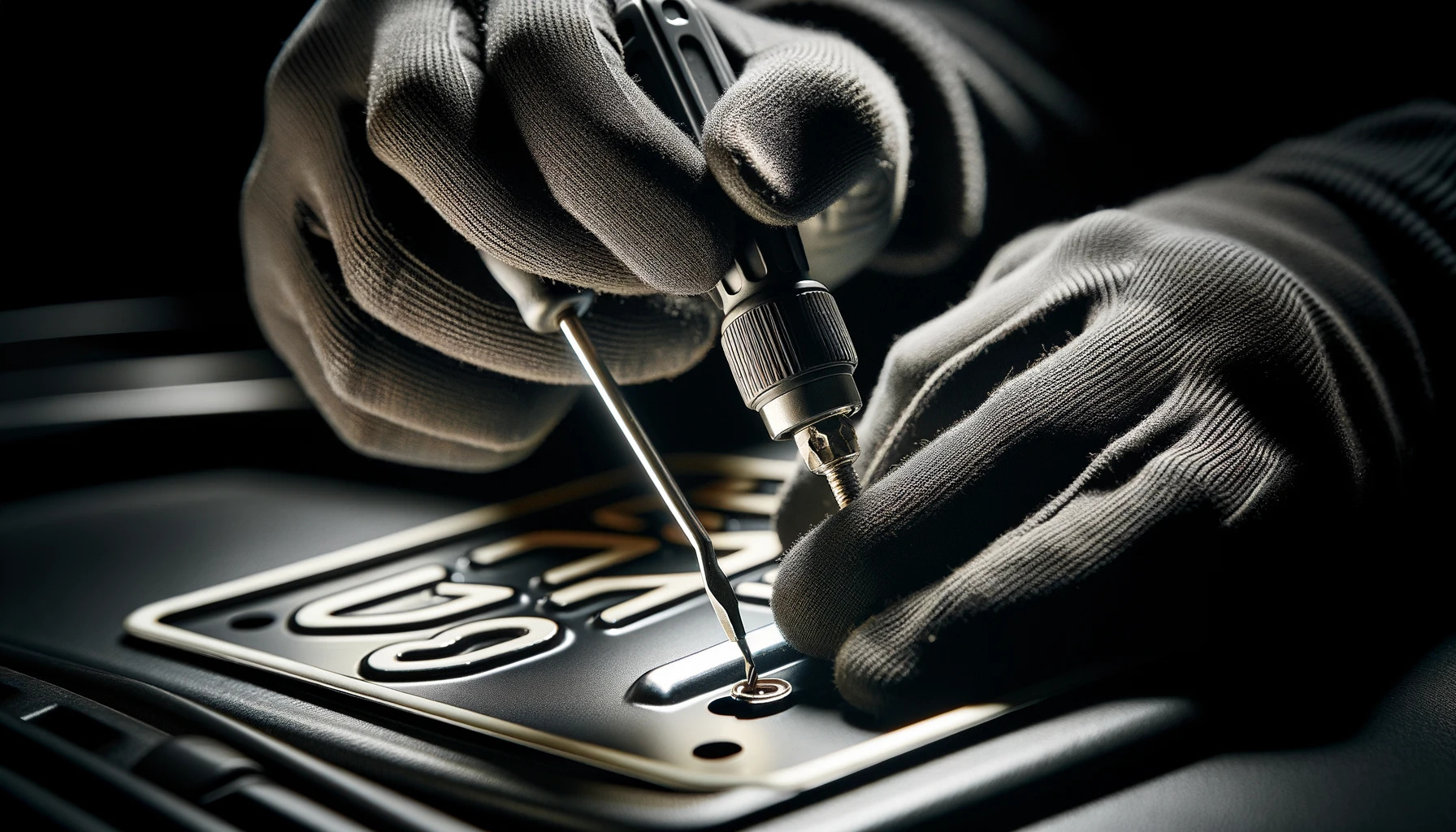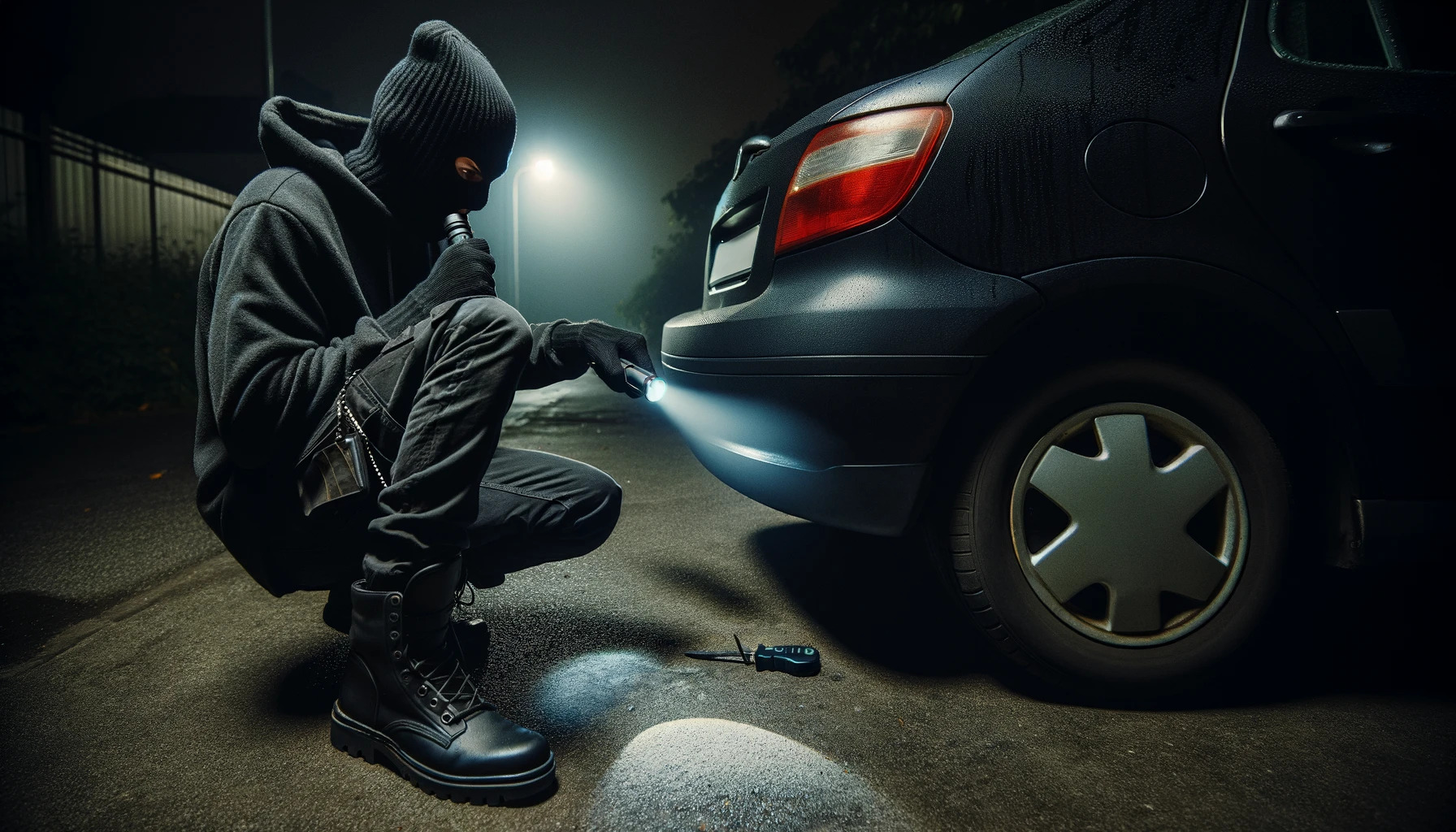Recently, the UK has witnessed a rise in number plate cloning and associated scams, posing a significant threat to car owners. This crime can result in various consequences for car owners, such as needing replacement number plates and receiving fines for crimes they did not commit.
But what is number plate cloning, and how can people prevent it?
This blog helps you find all the information you need about plate cloning and how to reduce the likelihood of it happening to your vehicle.
What is Number Plate Cloning?

Number plate cloning occurs when someone intentionally copies another individual's vehicle registration number and uses it on their vehicle illegally. The person chooses an identical make and model vehicle, often even matching the colour to the one they are cloning from, creating a near-identical duplicate.
The choice of the target plate is strategic; criminals often opt for plates with no prior offences attached, making them less likely to arouse suspicion.
Why are Number Plates Cloned?
Number plates are cloned primarily for their 'clean' history – devoid of speeding tickets, parking fines, or other offences. Criminals seek these plates to affix them onto their vehicles, enabling them to avoid detection and evade law enforcement.
Cloning plates creates significant challenges for the police, complicating their efforts to apprehend criminals who commit illegal motoring acts.
When such offences occur like speeding, the authorities contact the registered keeper, often an unsuspecting individual whose number plate has been cloned. Victims might remain oblivious until issued with fines and penalty notices.
But how can you prevent this from happening? In the following sections, we explore various prevention methods you can use.
How to Avoid Your Number Plates Being Cloned

Purchase Anti-Theft Fittings
Investing in anti-theft fittings is a significant step to protect your vehicle against number plate cloning.
Anti-theft screws, designed with unique patterns and specialised tools, deter unauthorised removal of your number plates. These screws render conventional screwdrivers useless, making it challenging for criminals to tamper with your plates easily.
Number plate protectors can also reduce the likelihood of someone physically removing your number plate from your vehicle.
These protectors not only preserve the integrity of your plates but also act as a deterrent against cloning attempts.
By incorporating these anti-theft fittings when fitting a number plate, you substantially reduce the vulnerability of your vehicle to cloning and enhance its overall security.
Never Post Pictures of Your Vehicle Online
Particularly on social media platforms, exercising caution when sharing pictures of your vehicle is paramount.
Posting images of your car online, including clear shots of your number plates, makes your vehicle susceptible to identity theft. Criminals find it easier to clone number plates online than traditional methods, such as observing vehicles on the street.
To lessen this risk, always blur or obscure your number plate in any photos you share online. By taking this simple precaution, you significantly reduce the chances of your vehicle falling prey to cloning schemes.
Check Images of Your Vehicle Don't Appear on Any Websites
Before you purchase a vehicle, it's crucial to conduct a thorough online check to ensure your car's images, including its number plates, do not appear on any websites.
Often, people post images of vehicles online, especially when they are up for sale. Potential buyers can access these images, making your vehicle vulnerable to cloning attempts.
If you discover any pictures of your vehicle online, particularly ones displaying your number plates, take immediate action to have them removed. Contact the website administrators and request the removal of these images to prevent unauthorised individuals from obtaining your vehicle's details. By proactively monitoring online platforms, you can significantly reduce the risk of falling victim to having your number plate cloned and related scams.
Park your Vehicle Away from Main Roads
Choosing strategic parking spots can help reduce the risk of number plate cloning.
Opting to park your vehicle away from main roads makes it less visible to criminals. Main roads allow people to survey passing vehicles, increasing the likelihood of them spotting your number plate.
By selecting less frequented areas for parking, you minimise the exposure of your vehicle, making it harder for criminals to target your number plates for cloning.
How Common is Number Plate Cloning in the UK?
Number plate cloning poses a significant threat in the UK, with approximately 13,000 plate duplications reported annually.
In March 2020 alone, over 1000 vehicles were wrongly believed to be involved in crime.
Police estimates suggest that up to 20% of vehicles on the road could have cloned number plates, emphasising the severity of this issue.
These statistics underline the urgency for car owners to take proactive measures to protect their vehicles and personal information.
How Can I Find Out If My Number Plate Has Been Cloned?
Ensuring the authenticity of your vehicle is crucial, especially with the rising number of plate cloning cases. To verify your car's legitimacy, follow these steps:
- First, get the registration number and make/model of the vehicle. For cars over three years old, you'll also need the MOT test number.
- Utilise the DVLA's online vehicle enquiry service to cross-verify these details.
- Confirm the vehicle's up-to-date MOT status and scrutinise its history online.
- Conduct a comprehensive HPI check for a detailed vehicle history report. If available, cross-verify with the vehicle's service history, contacting the respective garage if necessary.
- Research the market price; unusually low costs might indicate a cloned vehicle.
- Before purchasing a used car, compare the V5C vehicle logbook against the original details provided.
- Ensure the VIN (Vehicle Identification Number) and chassis numbers align across all documents.
Following these steps, you reduce the chances of having a cloned number plate for your vehicle.
How Can I Report If My Number Plate Has Been Cloned?
Discovering your number plate has been cloned can be distressing, but taking immediate action is crucial to protect yourself from legal repercussions.
Firstly, return any fines or tickets received to the issuing authority, along with evidence of your whereabouts during the incident, to prove your innocence. Clearly explain in writing that the reported incidents, such as speeding, do not involve your vehicle.
Notify the DVLA of your suspicion, providing all necessary details.
Additionally, file a report with the police, providing them with all relevant information and documentation.
Quickly reporting the cloning not only safeguards your reputation but also aids law enforcement in apprehending the culprits. By following these steps, you contribute to preventing further misuse of your cloned number plate and protect your legal standing.
With the increasing number of plate cloning cases in the UK, you must remain cautious. Using our strategies, you can reduce the chances of criminals cloning your plate and protect your vehicle.
If you want personalised number plates, Demon Plates can provide a range of options to find the ones you need for your vehicle. Contact us today for your personalised number plate!
